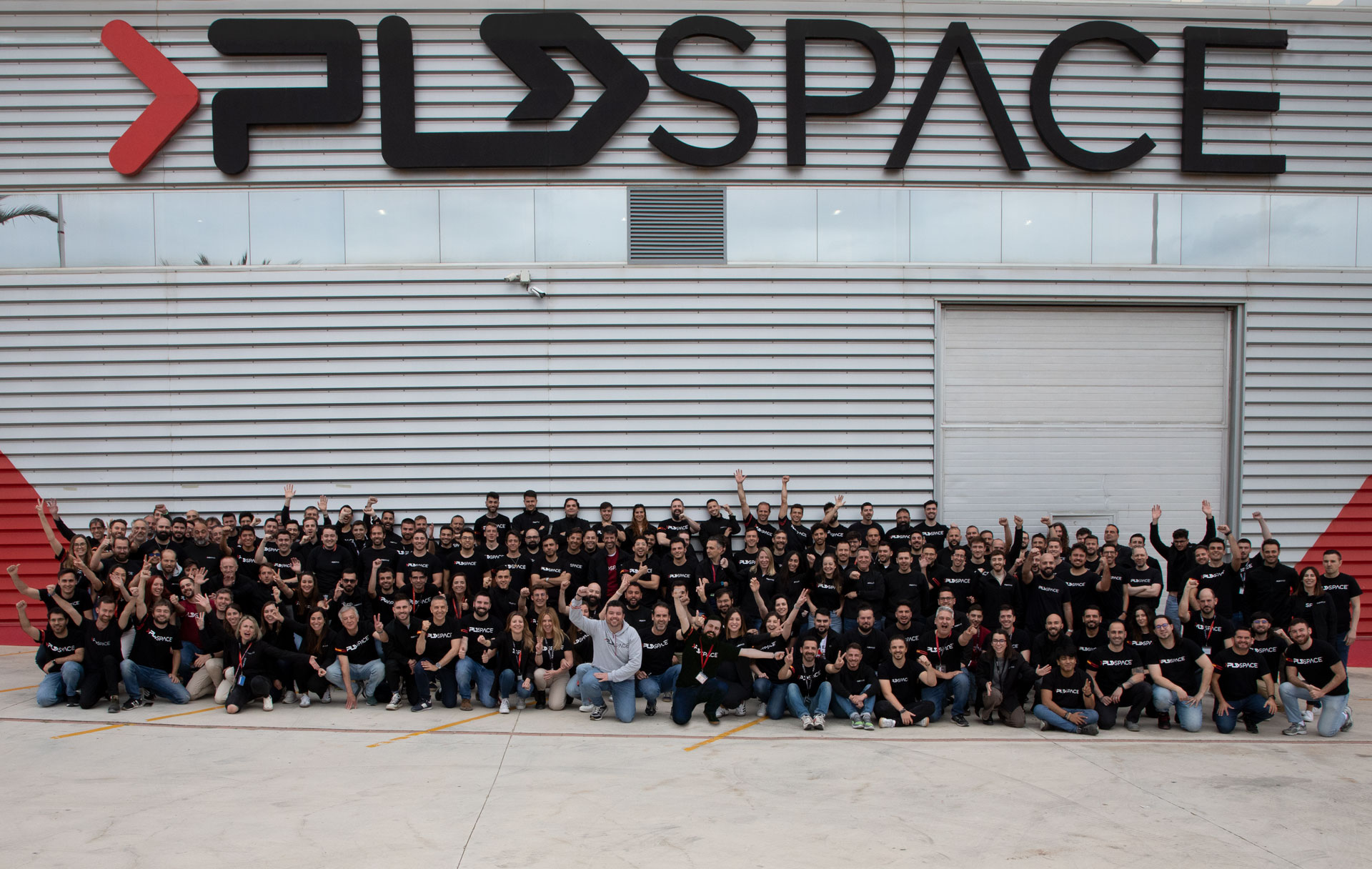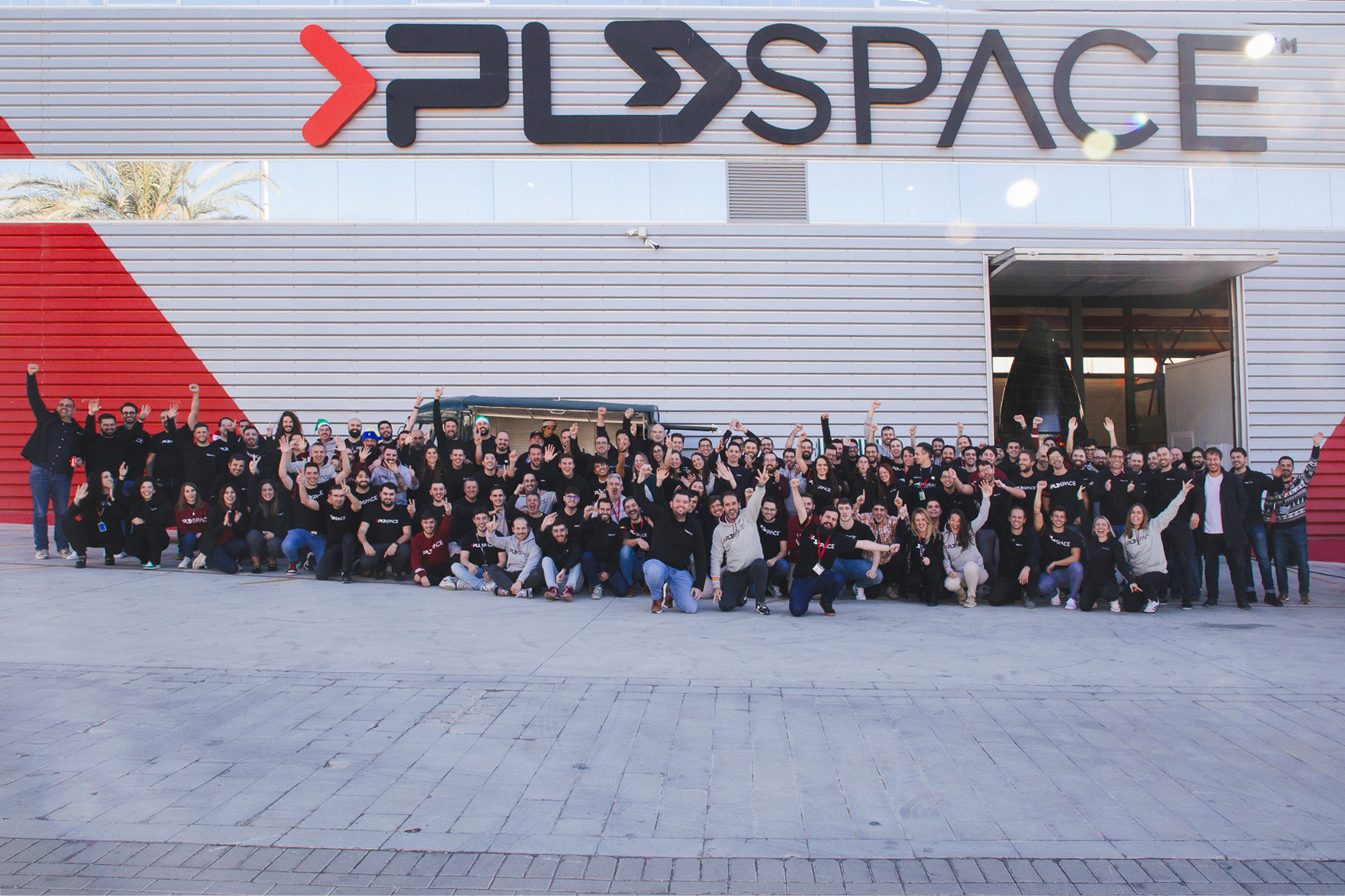
- The alliance of these two Spanish companies, unprecedented in the space segment, combines technology and sustainability.
- The main challenge of the agreement is to formulate new renewable rocket fuels and reduce the carbon footprint by 90% or even go negative
PLD Space, the leading European company in the micro-launcher industry, and Repsol have signed a pioneering collaboration agreement to jointly develop renewable fuels for space vehicles. The agreement includes both feasibility studies to replace current fuels with others produced with sustainable raw materials, as well as the design of new renewable fuels, which will be tailor-made in the Repsol Technology Lab for the rocket propellants manufactured by PLD Space, specifically for the MIURA recoverable micro-launchers. In this way, both companies are making progress towards the European Union's goal of climate neutrality by 2050.
With this agreement, the two companies are revolutionizing the future of rocket fuels, which currently use liquid kerosene similar to that used in civil aviation, or a specific rocket fuel called RP-1.
Repsol will formulate the new fuels from renewable or recycled raw materials, specifically, from advanced biofuels made from waste as raw material or using synthetic fuels that are produced from renewable hydrogen and CO2 removed from the atmosphere. In this way, a reduction of the carbon footprint of up to 90% or even negative is achieved.
Raúl Verdú, CBDO and Co-founder of PLD Space, has pointed out that "we were the first company in Europe to publicly commit to the recovery of its micro-launchers as proof of its commitment to the environment. We want to continue researching all the alternatives that allow us to reduce our carbon footprint, also in propulsion”.
Javier Aríztegui, Repsol's Senior Product Design Manager at Repsol Technology Lab, sees this project as "a great opportunity, as Repsol will apply the deep knowledge it has acquired over the years in the formulation of all types of fuels, including racing fuels, to develop a sustainable fuel for space vehicles. It is a challenge, and we feel prepared to face it successfully".
PLD Space is developing two reusable micro-launchers, the suborbital MIURA 1 and orbital MIURA 5, intended to provide commercial launch services to customers worldwide. Its family of liquid-fueled engines, called TEPREL, is powered by kerosene and liquid oxygen (KeroLOX). For MIURA 1, the firm currently uses Jet-A1 fuel, the fuel commonly used in aviation, while the propellant -the combination of a fuel and the comburent, which is usually oxygen- planned for MIURA 5 is RP-1, the standard for rocket engines.
“One of the challenges of the project is to maintain the same level of performance of the MIURA micro-launchers," says PLD Space Propulsion Manager, Francesco Spalletta. "Our responsibility is to maintain the vehicle performance while minimizing its environmental impact”.
About PLD Space
PLD Space is a pioneering Spanish company in the aerospace sector and a reference within Europe in the development of reusable rockets, with a recognized prestige in the sector and a solid project that has become a reality through its launch vehicles: the MIURA 1 suborbital and MIURA 5 orbital rockets, which will place Spain among the few countries with the capacity to successfully send small satellites to space.
With a decade of history, PLD Space plans to launch its MIURA 1 prototype in the next months and tackle its first real space transport mission with MIURA 5 in 2024. The firm, based in Elche (Alicante) and with technical facilities in Teruel, Huelva and French Guiana, has already achieved more than $50 million of investment to drive forward its project in the space sector.
About Repsol
Repsol has been manufacturing biofuels at its industrial complexes for years. They are produced from sustainable vegetable oils, biomass, agricultural and forestry waste and used cooking oils, among others. Biofuels, together with synthetic fuels, are a sustainable option and are one of the main solutions for reducing transport emissions in the coming years. They can be used in existing vehicles without the need for any modifications to engines or existing distribution and refueling infrastructures, and are suitable for all transport segments, especially in sectors such as aviation, shipping and heavy road transport, where electrification is not a viable alternative at present.
During the first half of 2023, Repsol will start up Spain's first advanced biofuels plant in Cartagena. It will manufacture 250,000 tons of advanced biofuels from waste. The multi-energy company is also making progress on its synthetic fuels plant in Bilbao, which will start production in the demonstration phase in 2024. These plants play a key role in Repsol's goal of reaching a production capacity of 1.3 million tons of renewable fuels in 2025 and more than 2 million tons in 2030, thus leading this market in the Iberian Peninsula and moving decisively towards zero net emissions in 2050.








